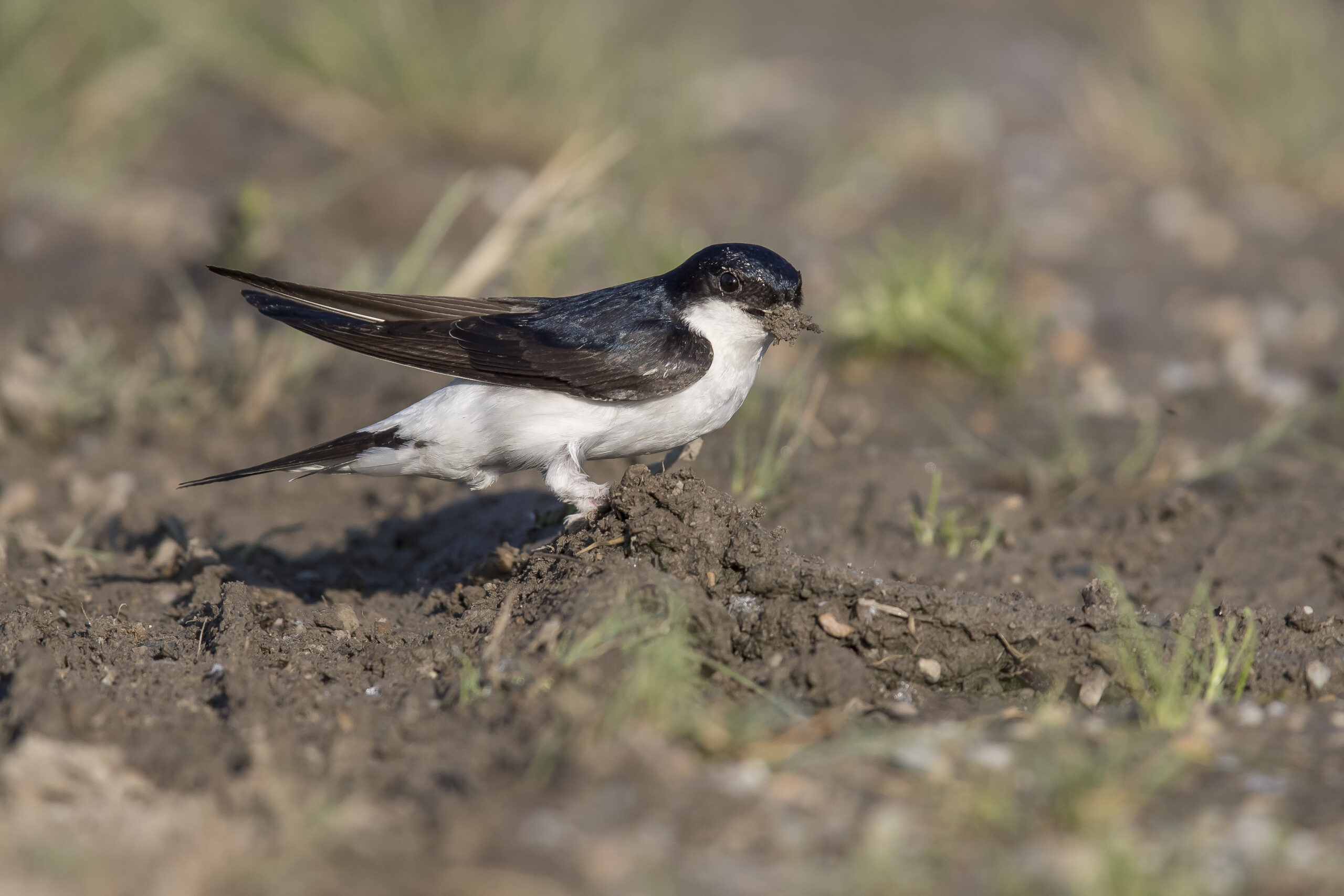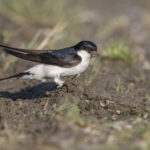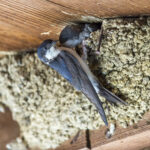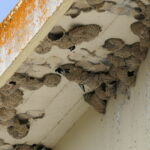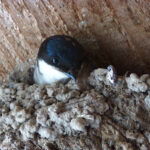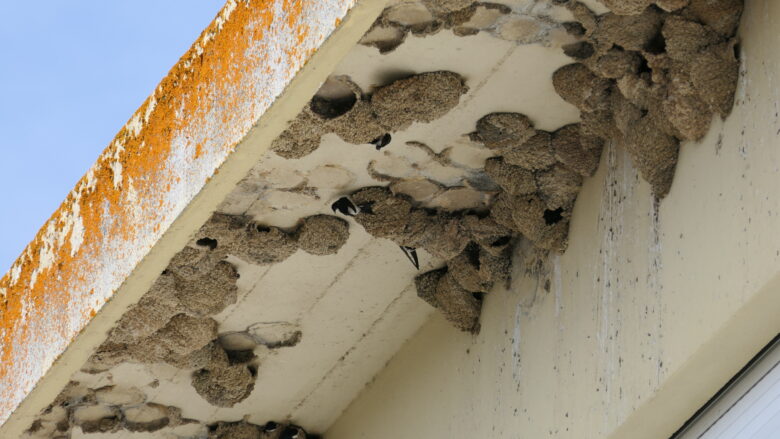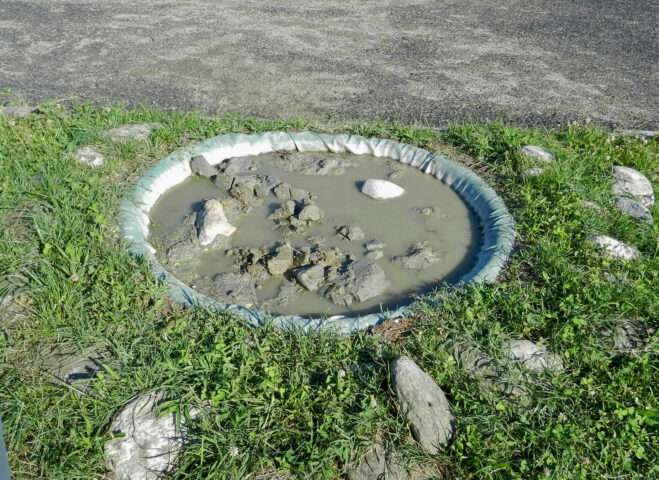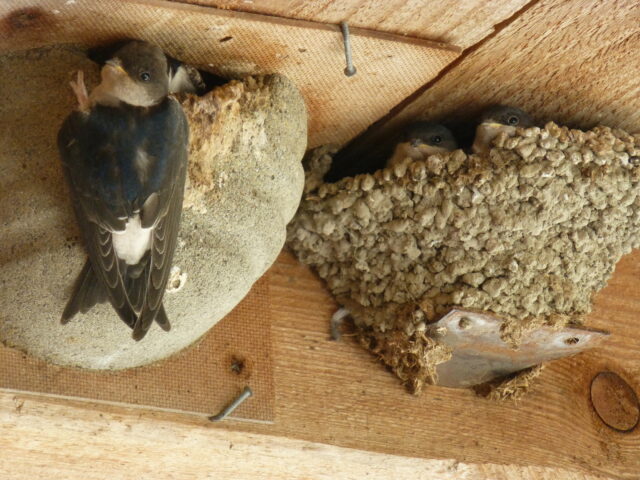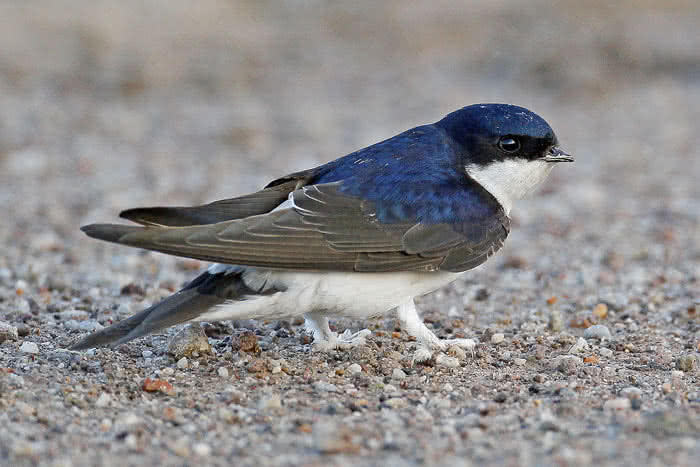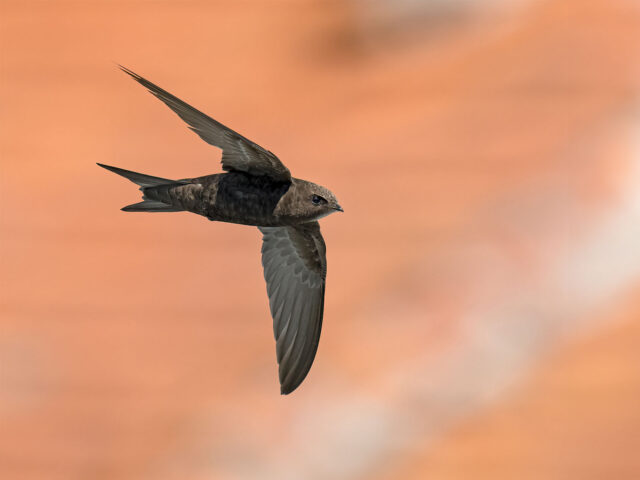The Northern House Martin lives in the heart of our villages and towns, where it builds its nest of clay pellets on the outside of buildings. A skilled flight artist, it is a popular bird and a typical building breeder. For this reason, the Northern House Martin should actually benefit from the ongoing expansion of built-up areas – but its numbers are in fact declining. Today, its proximity to human residential areas is increasingly becoming fatal for the Northern House Martin, as tolerance towards nests on buildings is decreasing and there is often hardly any suitable nesting material available. For this reason, it needs our help!
A young House Martin in a natural nest is fed by a parent bird with insects, which are only caught in flight.
The House Martin is a social species and sometimes forms very large colonies. The largest colony in Switzerland is located in Ticino and comprises some 300 natural nests.
As land sealing continues to increase, House Martins are often no longer able to find suitable places with nesting material. You can support natural nest building by creating artificial clay patches.
A House Martin naturally builds its nest from hundreds of clay pellets which it sticks individually onto the growing nest with its beak.
One popular promotion option for House Martins is the installation of artificial nests or simple support aids.
Artificial nests and droppings boards are a good combination. This can reduce soiling of the facade caused by droppings.
Protection and promotion for a sociable insectivore
Project team members
Betroffene Vogelarten
Urban Habitat
We show how gardens and green spaces become inviting for birds and where breeding grounds for birds can be created on buildings. We develop bird-friendly solutions for private individuals and municipalities and will be happy to advise you.

